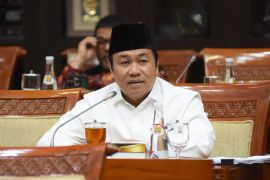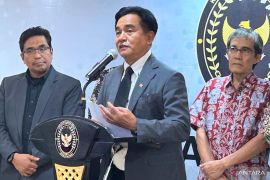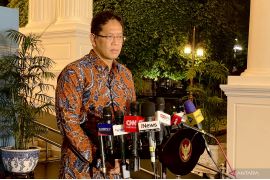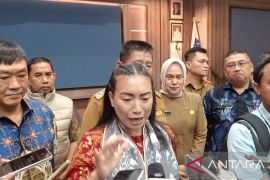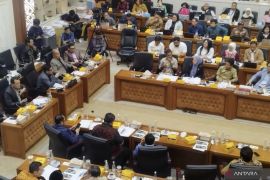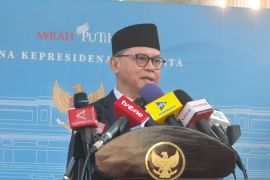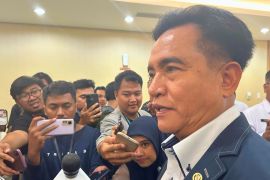"On behalf of the government, I would like to thank and give my appreciation to the House leaders and members for their approval of the substance of the bill on 2917 budget revision to pass it into law," Finance Minister Sri Mulyani said, while reading the governments final statement.
Based on the revised budget, state revenues are set at Rp1,736.1 trillion, while state expenditures at Rp2,133.2 trillion.
About Rp1,472.7 trillion in state revenues is expected to come from taxes, Rp260.2 trillion from non-tax income, and Rp3.1 trillion from grant.
Sri Mulyani noted that Rp1,366.9 trillion of the state expenditures would be of the central government and Rp766.3 trillion for transfers to regions and village funds.
Expenditures for ministries and state institutions have been agreed at Rp798.5 trillion, while for non-ministries and state institutions, it was agreed at Rp568.3 trillion.
Sri Mulyani remarked that the policy and allocation of state expenditures in 2017 were directed at supporting infrastructure development to boost economic growth, poverty alleviation, and reduction of gap.
She revealed that efficiency had been made at ministries and state institutions, and the funds from it have been reallocated for urgent and priority programs such as Asian Games 2018, infrastructure development, horticulture development, natural disaster handling, and preparations for regional and general elections.
Based on the revised budget, deficit is projected at Rp397.2 trillion, or around 2.92 percent of the gross domestic product.
To cover it, the government would conduct debt financing of up to Rp461.3 trillion by issuing state securities worth Rp467.3 trillion.
The revised budget was made based on macro-economic assumptions, including economic growth at 5.2 percent, inflation at 4.3 percent, the rate of three-month state securities at 5.2 percent, and the rate of exchange at Rp13.4 thousand against the US dollar.
Assumptions for the Indonesia Crude Price is set at US$48 per barrel, oil lifting at 815 thousand per day, and gas lifting at 1,150 barrels oil equivalent per day.
"The confirmation of change in the macro-economic indicators in the 2017 budget is expected to be able to give positive directives for the community and business world and served as a more realistic basis for the revised budget 2017," the minister explained.(*)
Editor: Heru Purwanto
Copyright © ANTARA 2017

